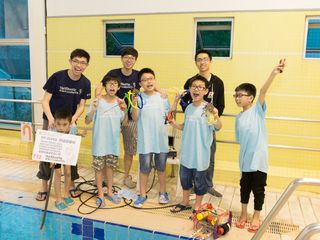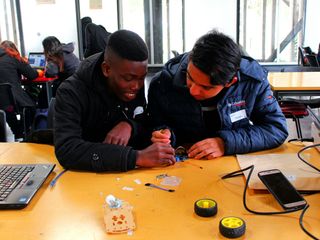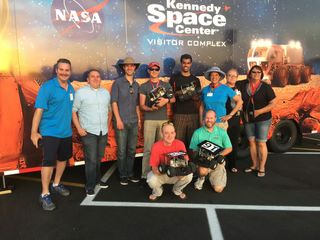Outreach and robotics initiatives use latest technology to increase diversity in engineering education
Albuquerque, 25 October 2018 – Airbus, the Global Engineering Deans Council (GEDC) and The United Nations Educational, Scientific and Cultural Organization (UNESCO), today announced the three finalist projects for the 2018 Airbus GEDC Diversity Award.
The 2018 award will be given to the project that demonstrates the best use of technology to enhance diversity in engineering education.
The award honors successful grassroots projects that inspire students from all backgrounds to study and succeed in engineering. The long-term objective of the award, now in its sixth edition, is to increase diversity among engineering professionals globally, so the engineering industry reflects the full spectrum of communities around the world.
The three final projects based in Chile, Hong Kong and the United States were selected from 39 entries across 19 countries.
Chile: Pontificia Universidad Católica de Chile – SaviaLab – A STEM education initiative for indigenous minorities and young people in rural areas. University students travel around Chile, training teachers and introducing over 3,300 students from 7 regions to potential STEM career paths. ‘‘Our pre-engineering early innovation programme has looked to empower students and teachers from rural communities since 2014,’’ explains Constanza Miranda, Assistant Professor of Engineering. ‘‘Throughout this process, our own students that represent minorities themselves, have re-signified their own engineering careers by translating their tech-knowledge to others across communities. This nomination gives us enough recognition in our country to continue the pursuit of equality and empowerment in STEM through in-the-field teaching.’’
Hong Kong: Hong Kong University of Science and Technology – iSTEAM Underwater Robot Competition – A robot design competition for children of all backgrounds and abilities, including those with special educational needs and disabilities. Over 1,000 children from 139 schools have participated since 2015. ‘‘Engineering in the Community’ and ‘Equal Learning Opportunity’ are two core beliefs of this project,’’ says Kam Tim Woo, Associate Professor of Engineering. ‘‘iSTEAM allows us to work together with different people in addressing both STEAM education and collaboration for a diverse group of contestants. It provides a great opportunity for an award-winning HKUST Robotics team to share their professional knowledge with young people.’’
United States: University of New Mexico – NASA Swarmathon – A ‘swarm robotics*’ programming challenge for students from minority serving institutions. Funded by NASA Education, the year-long competition culminates in a three-day tournament at the Kennedy Space Center. In the first 3 years, over 1,500 students participated, with 63 percent from underrepresented ethnic and racial groups. Professor Melanie Moses explains: ‘‘It is wonderful to have the hard work and accomplishments of the Swarmathon students recognised by an international aerospace leader. To successfully explore beyond our world will require the creativity and engineering talents of all of us here on earth. Airbus funding will help the diverse community of Swarmathon students to soar to new heights.’’
Representatives of the three finalist projects will present their initiatives to an expert jury at the 2018 WEEF-GEDC conference in Albuquerque, New Mexico, USA, which takes places from 12–16 November 2018. The winning project will be announced at a gala dinner on Tuesday 13 November.
$10,000 will be awarded to the winning project team to support the continuation of their work. The two runners up will each receive $1,500 to support further communication about their initiatives.
“A diverse workforce is proven to be more productive and innovative,” said Linda Herbert, Vice President Inclusion and Diversity, Change Management and CSR at Airbus Americas Inc. “For Airbus inclusion and diversity is recognized as an energizer for our business. An inclusive working environment is a place where all employees can bring their full self to work and are respected and valued for their distinctive contributions.”
Airbus initiated the award in 2012, with 198 submitted entries representing 140 institutions from 37 countries to date.
Links
More information is available at: https://www.company.airbus.com/diversityaward
Notes to Editors
*Swarm robotics is a form of robotics in which multiple small or simple robots work as a coordinated system to perform tasks.
#DiversityAward2018 #WEEFGEDC2018 @UNESCO



